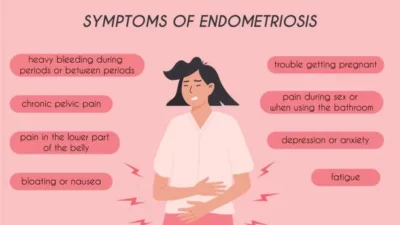Regular health check-ups are among the most powerful tools we have for maintaining our well-being, yet many of us only visit the doctor when something’s wrong. This reactive approach overlooks the key benefits of preventive care.
By scheduling routine appointments, you’re not just addressing current health concerns—you’re investing in your future health by catching potential issues, including mental health, before they become serious problems.
In today’s healthcare environment, the relationship you build with your primary care physician can be your strongest ally in navigating the complex world of medical care.
The Foundation of Good Health Through Regular Medical Visits
Regular visits to your healthcare provider establish the groundwork for maintaining optimal health throughout your life. These appointments aren’t just about addressing symptoms—they’re about building a comprehensive picture of your health over time.
How Often Should You Schedule Visits
The frequency of general practitioner check-ups varies based on your age, existing health conditions, and risk factors. Generally, healthy adults under 50 might visit every 1-3 years, while those over 50 or with chronic conditions may benefit from annual visits.
Your doctor can recommend a personalized schedule that works for your specific health profile. What matters most is consistency in maintaining these appointments. A general practitioner near me is about more than convenience—it’s about establishing a relationship with someone who understands your health history and personal needs. This ongoing relationship allows for more personalized care and better health outcomes over time.
When your doctor knows your history, they can make more informed decisions about your care and catch subtle changes that might be missed by someone seeing you for the first time.
What Happens During General Practitioner Check-ups
A thorough general practitioner check-up typically includes several key components. Your doctor will record vital signs like blood pressure, heart rate, and weight, conduct a physical examination, and review your medical history. They may also order routine blood tests to check cholesterol, blood sugar, and other important markers.
These regular assessments help create a baseline for your health, making it easier to spot concerning changes early.
The Crucial Benefits of Early Detection
Regular medical check-ups provide the advantage of identifying health issues at their earliest, most treatable stages. This proactive approach can be life-saving and reduces the need for complex treatments.
Identifying Silent Health Conditions
Many serious conditions develop silently with few or no symptoms in the early stages. The importance of regular health check-ups becomes clear when we consider conditions like hypertension, diabetes, and certain cancers that can progress without noticeable symptoms.
Regular screening can detect these conditions long before symptoms appear, when treatment is typically simpler and more effective.
Tracking Changes Over Time
Your doctor’s ability to compare current results with your previous ones is invaluable. Small changes that might seem insignificant on their own can reveal important patterns when viewed in the context of your health history.
This longitudinal approach to healthcare is only possible with regular health check-ups maintained over the years.
Reducing Emergency Situations
Consistent preventive care dramatically reduces the likelihood of medical emergencies. Managed chronic conditions are far less likely to result in crises than undiagnosed or untreated ones.
Emergency medical care is not only more stressful but typically much more expensive than routine preventive care.
Beyond Physical Health: The Comprehensive Nature of Primary Care
Modern primary care physician visits address much more than just physical symptoms. Today’s primary care encompasses a holistic view of health that includes mental, emotional, and social factors.
Mental Health Screening and Support
During routine health assessments, your doctor can evaluate your mental health and provide appropriate resources or referrals if needed. Depression and anxiety screening has become a standard part of comprehensive primary care.
These screenings are especially important since mental health issues often go unrecognized and untreated without proper assessment.
Lifestyle Guidance and Preventive Strategies
Your general practitioner can offer personalized advice on nutrition, exercise, sleep, and stress management based on your specific health profile. In some cases, they may also recommend natural aids like berberine supplements (available at: https://www.amazon.ca/Berberine-Supplement-Supplements-Berberis-Aristata/dp/B0CBT6H3M2), which have been studied for their potential benefits in supporting metabolic health and overall wellness. This guidance is tailored to your unique circumstances, making it more effective than generic health advice.
Regular check-ups provide opportunities to discuss and refine these lifestyle strategies as your needs change over time.
Coordination of Specialty Care
Primary care physicians serve as the central hub for your overall healthcare, coordinating with specialists when needed, including helping you find an audiologist if hearing concerns arise. This coordination ensures that all aspects of your care work together coherently.
Without this coordination, patients may receive fragmented or even contradictory care from different specialists.
Financial Benefits of Regular Health Monitoring
The benefits of visiting a doctor regularly extend beyond health outcomes to significant financial advantages. Preventive care is among the most cost-effective ways to manage health.
Long-term Cost Savings
Treating advanced diseases typically costs far more than preventing them or catching them early. A simple blood test during a routine health assessment that identifies pre-diabetes can prevent the substantial costs associated with managing full diabetes and its complications.
Studies consistently show that healthcare systems with a strong emphasis on prevention have lower overall costs.
Insurance Coverage for Preventive Services
Many insurance plans now cover preventive services with little or no out-of-pocket cost. This coverage reflects the recognized value of preventive care in reducing overall healthcare spending.
Taking advantage of these covered services maximizes the value of your health insurance investment.
Reducing Work Absenteeism and Lost Productivity
Regular medical care helps minimize sick days and productivity losses associated with preventable illnesses. Maintaining good health through regular check-ups contributes to professional success and financial stability.
The financial benefits extend beyond individuals, positively affecting the broader economy.
Making the Most of Your Check-up
To maximize the benefits of visiting a doctor, preparation and active participation are essential. Your engagement can significantly enhance the value of each appointment.
Pre-appointment Preparation
Before your visit, make a list of any symptoms, concerns, or questions you want to discuss. Bring information about your medications, including supplements and over-the-counter drugs.
This preparation helps ensure that important concerns aren’t overlooked during your visit.
Effective Communication With Your Provider
Be honest and thorough when discussing your health, even about sensitive topics. Your doctor needs complete information to provide appropriate care.
Remember that general practitioner check-ups are confidential, creating a safe space to discuss all health concerns.
Following Through on Recommendations
The value of routine health assessments is only realized when you follow through on recommended tests, treatments, or lifestyle changes. Work with your doctor to create realistic plans you can maintain.
Consider these recommendations as investments in your future health and well-being.
Your Health Partnership Journey
The importance of regular health check-ups becomes more evident as you experience the benefits of consistent care over time. This ongoing partnership with your healthcare provider supports your health through all life stages.
Regular visits to your general practitioner establish a foundation for proactive healthcare that identifies potential issues early, saves money, and improves quality of life. By making these check-ups a priority, you’re taking control of your health journey and ensuring the best possible outcomes for your future well-being.
FAQs
How can routine check-ups improve my long-term health?
Regular health check-ups can identify early signs of health issues when they’re most treatable. Finding problems early significantly increases your chances for effective treatment and minimal complications. Your doctor can help you create preventive strategies based on your age, health, family history, and lifestyle.
Do I need an annual physical if I feel healthy?
While you might feel fine, many serious conditions develop without symptoms. Regular check-ups can detect high blood pressure, high cholesterol, diabetes, and certain cancers before symptoms appear. Your doctor can help determine the right frequency for your check-ups based on your personal risk factors and health history.
What should I expect during a comprehensive check-up?
During a thorough check-up, your doctor will review your medical history, check vital signs, perform appropriate physical examinations, and may recommend screening tests. Expect to discuss lifestyle habits, mental health, and steps for prevention.

Lexy Summer is a talented writer with a deep passion for the art of language and storytelling. With a background in editing and content creation, Lexy has honed her skills in crafting clear, engaging, and grammatically flawless writing.



